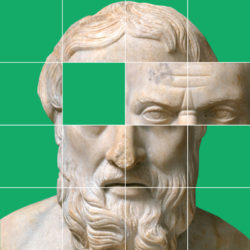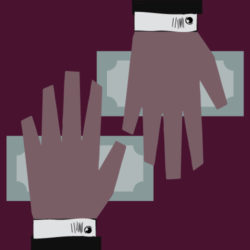Czech James Bond, battle for Africa, Russia’s favorite American comedian
Czechia elected a new president this week. In a second-round runoff, which was portrayed by the media as a contest between populist oligarchy and liberal democracy, retired NATO general Petr Pavel beat his populist challenger, former Prime Minister Andrej Babis. But Babis supporters fought dirty. So dirty that at some point in the runoff the internet suddenly pronounced Pavel dead. As the news spread like wildfire, Pavel took to Twitter. “I am alive,” he wrote. “I never thought I would have to write this online. Someone is sending out a fake copy of my website with the news of my death on behalf of my spokesperson.” A little later, he tweeted a photoshopped image of himself as James Bond in a poster for the 2021 Bond movie “No Time to Die.” Pavel had the last laugh, but electoral disinformation spread through social media is going to be a recurring theme in elections around the world this year.
“It can always get worse.” The Kremlin makes this point every single week, as it further tightens the screws around any opposition to its war in Ukraine. Last week, Russian officials banned Meduza, the country’s leading independent media from operating in the country. On one hand, the ban is meaningless — the Meduza newsroom has been operating in exile (in Latvia) for years now. But it does mean that anything the Russian authorities choose to see as cooperation with Meduza or its journalists — giving an interview, say, or even sharing a Meduza link on social media — could technically land one in prison. The banning order will make Meduza’s already very difficult job of covering Russia effectively impossible.
The war in Ukraine has sparked a diplomatic onslaught on Africa, as Russia and the West engage in a battle for the hearts and minds of the continent’s people. Regular readers of Disinfo Matters know that we’ve been tracking the topic obsessively. Last week, I wrote about RT’s aggressive expansion across Africa. And this week Coda’s Frankie Vetch caught up with Ukraine’s Ambassador in Pretoria, South Africa to find out what Ukraine is doing to counter Russia’s information offensive.
UPDATE: BATTLE FOR AFRICA
By: Frankie Vetch
Courting African leaders is the latest geopolitical game in town. Delegations from the EU, the U.S., Greece and China flocked to South Africa in January. But it was Sergey Lavrov, the Russian foreign minister, whose visit got the most attention from the local press. It helped that Lavrov arrived in the wake of an announcement that Russia, China and South Africa would conduct a joint naval exercise in February, a sign of Moscow’s progress in building a global anti-NATO coalition.
The attention Russia is paying to Africa has been high profile, focused and detailed. Russia even engages African influencers to push Russian talking points. The impact of this strategy has been extraordinary, especially because Moscow doesn’t have much to offer Africa. The EU, China and the U.S. are much more valuable trading partners. And African imports from Russia (mostly weapons and wheat) dwarf the continent’s exports. But the Kremlin has mastered the art of selling itself as the global bulwark against Western hegemony. Russia has monopolized the Soviet Union’s historic legacy of anti-colonial messaging and weaved it into aggressive disinformation and propaganda campaigns.
Transparent though the Kremlin’s tactics might be, they work. When Volodymyr Zelensky invited 55 African heads of states to a virtual meeting some months ago, only four bothered to turn up.
“What is Ukraine doing to counter all of this Russian messaging? What can it do?” I asked the Ukrainian ambassador to South Africa, Liubov Abravitova. She says she has put some Ukrainian books on library shelves and participated in film showings, poetry readings and dance festivals.
Abravitova was keen to stress that Ukraine has been investing in providing humanitarian aid in the form of grain to African countries in need. But even this flagship “Grain from Ukraine” initiative has gone largely unnoticed on the continent, generating far less buzz than Lavrov’s visits, his op-eds decrying Western colonialism in Africa or the upcoming Russia-Africa summit in Saint Petersburg in the summer.
Ukraine was, at one point, promising to hold a summit for Africa, too. Will this happen? Abravitova did not have any details. It looks like her bosses, under attack in Kyiv, simply do not have the bandwidth to think about Africa. Until they do, Russia will continue to win hearts and minds on the continent.
FOLLOW UP: WHEN PROPAGANDISTS ARE OUT OF COMMISSION
This week Axios had a fascinating scoop on a group of former RT America employees who launched a new venture in their old studio in Washington, D.C. Details are fuzzy, but the news made me wonder about the career trajectories of all the other RT talent the network had scooped up. What happens after the propaganda channel you work for is shut down?
Take, for example, Lee Camp, an American satirist and host of an RT America show called “Redacted.” Back in 2016, when Coda was just in its pilot phase, we spent a day with Camp, who scoffed at allegations that his show was Kremlin propaganda. We learned that he came from the tradition of Occupy Wall Street and turned his show into a sustained critique of American neoliberalism or, more broadly, the “system.” He thought of “Redacted Tonight” as an activist collective. His audience members told us that unlike American networks RT had “substance.”
Lee Camp stuck with RT for years and, along with his other colleagues, was laid off on March 1, 2022 when, following the full scale invasion of Ukraine, U.S. authorities ordered RT America to shut down. The archive of his show was taken off Youtube, his podcast was taken off Spotify.
In an interview with China’s Global Times he talked about his situation as modern-day McCarthyism. He said he was opposed to the invasion of Ukraine, but… and then repeated, with apparent conviction, all of the basic lies that Russian propaganda has deployed to justify the invasion: Ukraine is run by Nazis, who run dangerous bio labs and serve the interests of war-mongering NATO generals.
A year after he lost his job at RT, Lee Camp can now be found on Locals, a crowdfunding platform that “empowers authentic communities.” There, Camp, who brands himself as “one of the most censored comedians in America,” promises to bring his followers REAL news.







